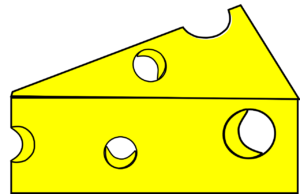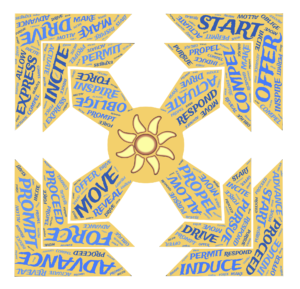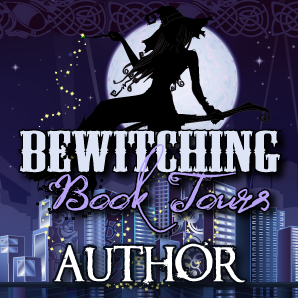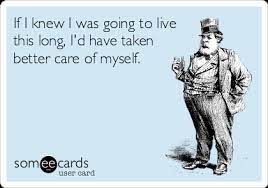
By Debbie Burke
@burke_writer
Age.
Like the weather, we talk about it a lot but can’t do anything about it.
Remember the original Nancy Drew books? I devoured 37 of them before outgrowing the series. From the first book The Secret of the Old Clock (1930) until #37, The Clue in the Old Stagecoach (1960), Nancy was 16 to 18.
Thirty-seven adventures in two years? Busy young lady, that Nancy.
But she started me thinking about writing series characters.
Can they stay the same age through numerous books?
Should they age?
That raises more questions when writing a contemporary series with continuing characters.
What kind of character arc can an author create if the hero doesn’t age?
Is an evolving character arc important to today’s readers?
How does an author keep characters fresh and interesting if they remain approximately the same age over a number of books?
Classics like Sherlock Holmes and Miss Marple remain basically static; the plots change but the characters don’t.
Then there is the quintessential hard-boiled hero, Philip Marlowe.
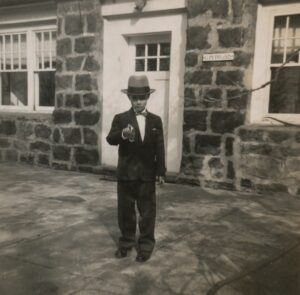
Even Philip Marlowe was young once – photo credit Maika, CC BY-NC-SA 2.0
Although I don’t believe his specific age is ever mentioned (please correct me if I’m wrong), the reader has the strong impression that, at birth, Marlowe was already old and cynical.
Over two decades, starting with The Big Sleep (1939) and ending with Playback (1959), Marlowe was repeatedly beaten up, double-crossed, and betrayed. His life remained solitary with occasional sexual encounters that didn’t end well. The tarnished knight won a few victories but ultimately lost the war against evil. As vivid and memorable a character as he was, he didn’t change much, except for more scars. (Note: I’m not counting Poodle Springs, Chandler’s unfinished novel completed by Robert B. Parker and published in 1989 where Marlowe married, at least for a little while.)
How would readers react to Arthur Conan Doyle, Dame Agatha Christie, or Raymond Chandler if their books were released today?
Contemporary readers seem to lean more toward series characters who go through ups and downs similar to those we face in real life.
In James Lee Burke’s series, the beleaguered Dave Robicheaux moves from New Orleans to New Iberia, switches jobs, falls off the wagon and climbs back on, gains and loses spouses and friends, and adopts a child who grows up through the books.
Readers meet Kinsey Milhone at age 32, with a police career and two marriages already behind her. In the course of Sue Grafton’s 25-book Alphabet Series, Kinsey has her home blown up and rebuilt, loses her beloved VW convertible, discovers the roots of her absent family, falls in and out of love several times but remains determinedly single. In the final book, Y is for Yesterday, she is 39.
Judging by their popularity, readers relate deeply to characters like Dave and Kinsey. We’ve been in the trenches beside them as they live through the same life trials that we ourselves do. They become close friends we’ve known for years.
What do series authors need to consider when time passes and their characters age?
When I wrote Instrument of the Devil in 2015-6, I didn’t envision a series. The book was set in 2011 as smartphones were transitioning from exotic toys for geeks into phones adopted by ordinary people. Because of a new smartphone, my character Tawny Lindholm stumbles over her milestone 50th birthday and into a nightmarish world of technology. Unbeknownst to her, it has been rigged by a terrorist to launch a cyberattack she’ll be blamed for.
The book was published in 2017, six years after the story takes place.
Near the end of Instrument, a brilliant, arrogant attorney, Tillman Rosenbaum, came on scene to defend Tawny. He was intended as a minor walk-on character. However, the match and gasoline chemistry between him and Tawny propelled them into more books where she goes to work as his investigator despite her dislike for him.
[Spoiler alert: they ultimately fall in love. But you’d already guessed that, right?]
What I originally conceived as a one-off had longer legs than anticipated.
Although there are no time stamps, roughly two years pass during the second and third books in the series, Stalking Midas and Eyes in the Sky.
Then, in 2017, Hurricane Irma struck Florida and knocked out power to 16 million residents.
The event tweaked my writer’s imagination. Reports of people who mysteriously went missing during that storm, along with scary personal experiences related to me by family and friends, turned into Dead Man’s Bluff.
After drifting along a vague fictional timeline starting in 2011, all of a sudden there’s a real date that’s set in stone. Uh-oh.
Okay, I figured from now on, I’d just make oblique references to Tawny’s age. Her children are in their thirties. Let readers infer she’s somewhere in her fifties.
As often happens with writing, life had other plans.
2020 hit.
Can an author ignore monumental events that tilt the world on its axis?
Not unless you write alternate history.
For much of 2020, writers debated how to handle the pandemic in current fiction. If it was incorporated into the plot, readers who were sick of it might be alienated. If we tried to ignore it, hoping it would go away, we risked being perceived as unrealistic and insensitive. (Other than that, Mrs. Lincoln, how did you like the play?)
Some authors attacked it head-on with thrillers about biological weapons or adventures in a post-pandemic, futuristic, dystopian world.
Some retreated in time to historical genres where major outcomes—like who won the war—had already been determined.
Others dove into fantasy genres where the author, not real life, decided the outcome.
Now in the last quarter of 2021, the world changes faster every day. What you wrote this morning may well be obsolete and out of date by this afternoon.
 The sixth book in my series, Flight to Forever, is set in spring of 2020. When a Vietnam veteran can’t visit his beloved wife in a memory care facility because of pandemic restrictions, in desperation, he busts her out, seriously injuring two employees during the getaway. They flee to a remote fire lookout in treacherous Montana mountains. Tawny races to find them to prevent a deadly showdown between the cops and the vet who has nothing to lose.
The sixth book in my series, Flight to Forever, is set in spring of 2020. When a Vietnam veteran can’t visit his beloved wife in a memory care facility because of pandemic restrictions, in desperation, he busts her out, seriously injuring two employees during the getaway. They flee to a remote fire lookout in treacherous Montana mountains. Tawny races to find them to prevent a deadly showdown between the cops and the vet who has nothing to lose.
Do the math. If Tawny was 50 in 2011, that made her 59 in 2020.
Uh-oh, I really should have hired a stunt double for her in this book.
Even though 60 is the new 40, will readers find some of the action implausible for a woman her age?
Many people in their 70s and 80s are in fantastic shape. Recently I wrote an article for Montana Senior News about the Senior Olympic games where nonagenarians are setting athletic records.
Yet ageism lurks in the world of publishing and literature.
Especially about sex.
Many younger readers are creeped out by the notion that characters who are their parents’ or grandparents’ age enjoy sex.
Newsflash, kid—that’s how you got here. And, since you grew up and moved out, it’s even better.
How about physical wear and tear on characters?

Gunsmoke cast – public domain
Remember classic TV westerns like Gunsmoke? Whenever Matt Dillion got shot (reportedly more than 50 times), in the final scene, he’d be back in the saddle with one arm in a sling. By the following episode, he resumed life as usual—galloping horses and engaging in fisticuffs.
How realistic should series fiction be? How far will contemporary readers go to suspend disbelief?
If we put our lead characters through hell, in the next book, should they suffer from PTSD or physical disability?
What if you write middle grade or young adult books? Every year, there’s a new crop of readers to replace older ones who’ve outgrown a series. Perhaps MG and YA characters don’t need to age. Nancy Drew did all right. What do you think?
For now, I’ll keep writing Tawny and Tillman in their fifties and hope no one checks my math too carefully.

CC by 2.0
Or maybe I’ll let them drink out of Nancy’s fountain of youth.
~~~
For discussion:
Question for series authors: how do you handle age and the passage of time with continuing characters?
Have you found workarounds, tips, or tricks?
Question for series readers: Do you care about the main character’s age? Do you want to see evolution and change in them over time?
~~~
 To follow series characters who age more slowly than the calendar, please check out Tawny Lindholm Thrillers with Passion.
To follow series characters who age more slowly than the calendar, please check out Tawny Lindholm Thrillers with Passion.
Amazon link
Other online booksellers:
Instrument of the Devil Stalking Midas Eyes in the Sky
Dead Man’s Bluff Crowded Hearts Flight to Forever



 Wings
Wings
 Franklin W. Dixon,
Franklin W. Dixon, 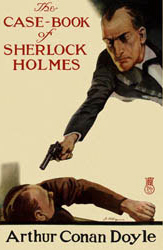 Arthur Conan Doyle, “The Adventure of the Veiled Lodger” and “The Adventure of Shoscombe Old Place,” the last two stories from
Arthur Conan Doyle, “The Adventure of the Veiled Lodger” and “The Adventure of Shoscombe Old Place,” the last two stories from 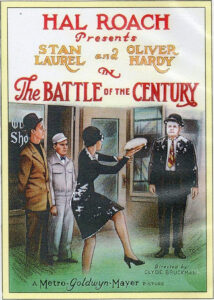 The Battle of the Century (starring the comedy duo Laurel and Hardy; directed by Clyde Bruckman)
The Battle of the Century (starring the comedy duo Laurel and Hardy; directed by Clyde Bruckman)


 The sixth book in my series,
The sixth book in my series, 

 To follow series characters who age more slowly than the calendar, please check out
To follow series characters who age more slowly than the calendar, please check out 